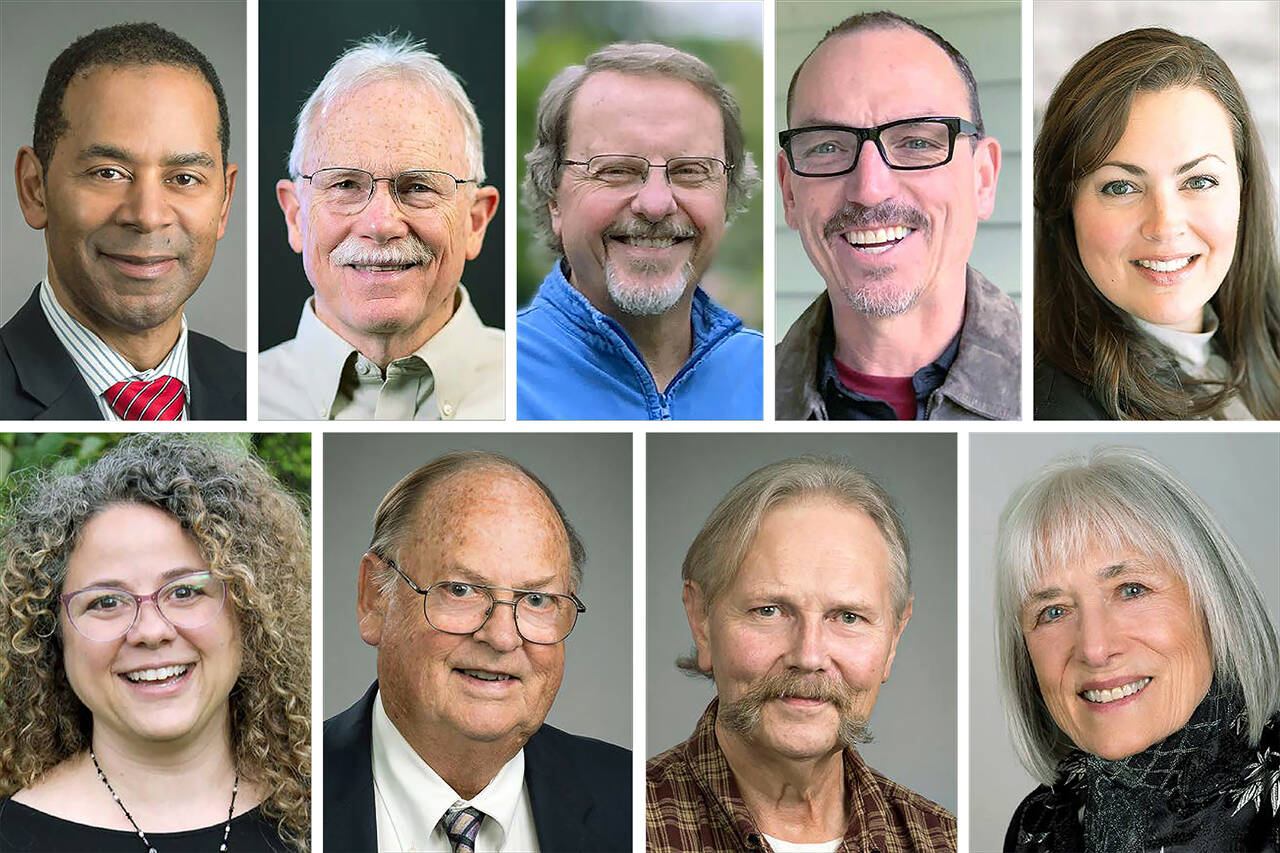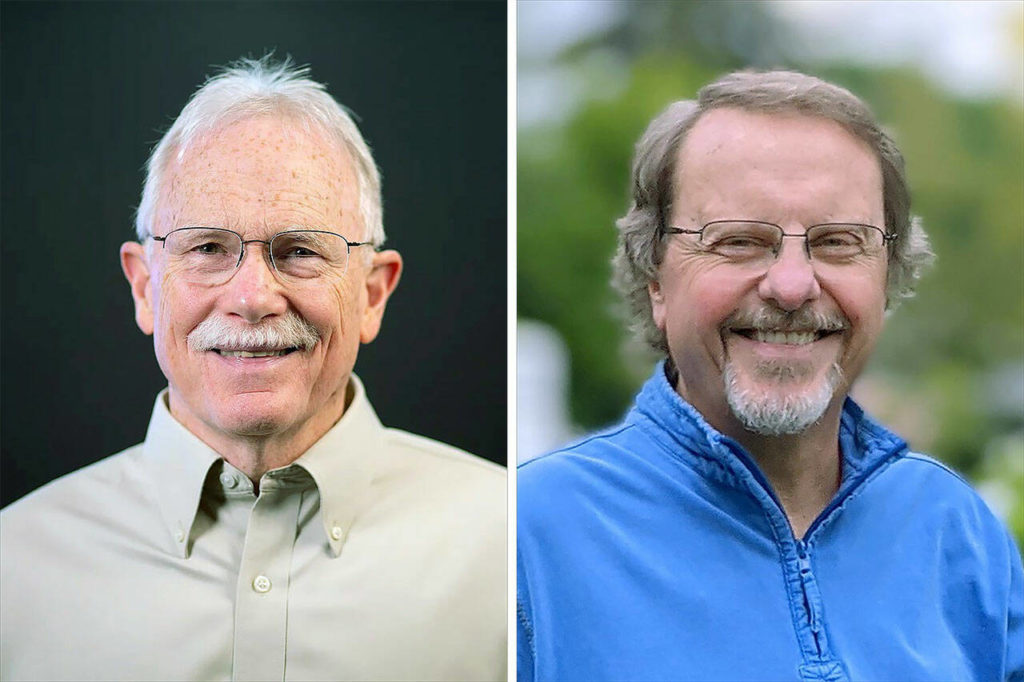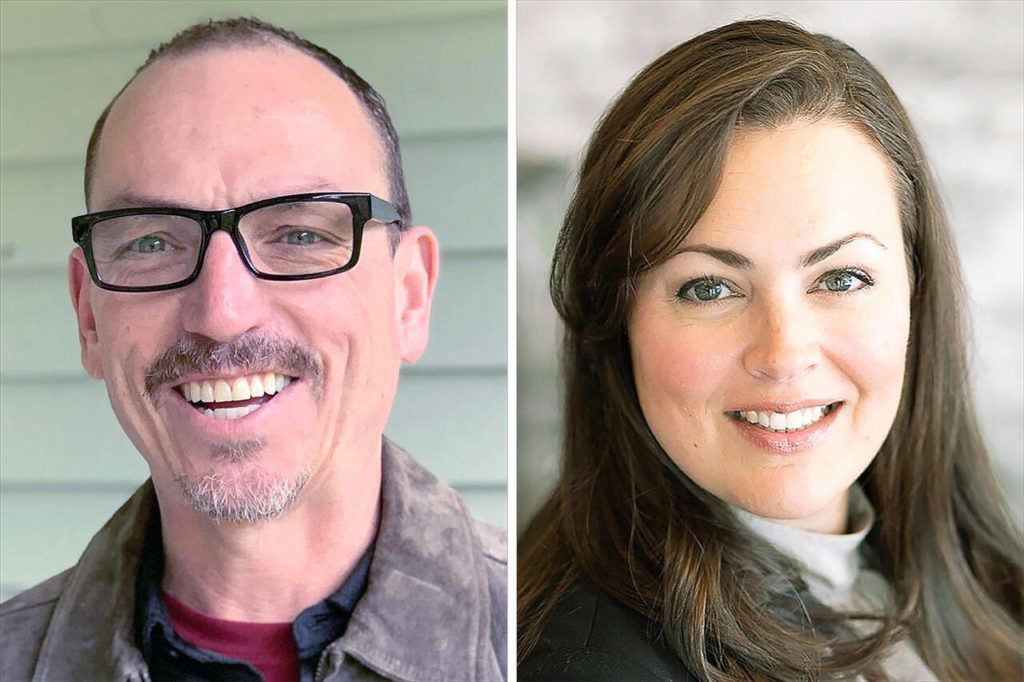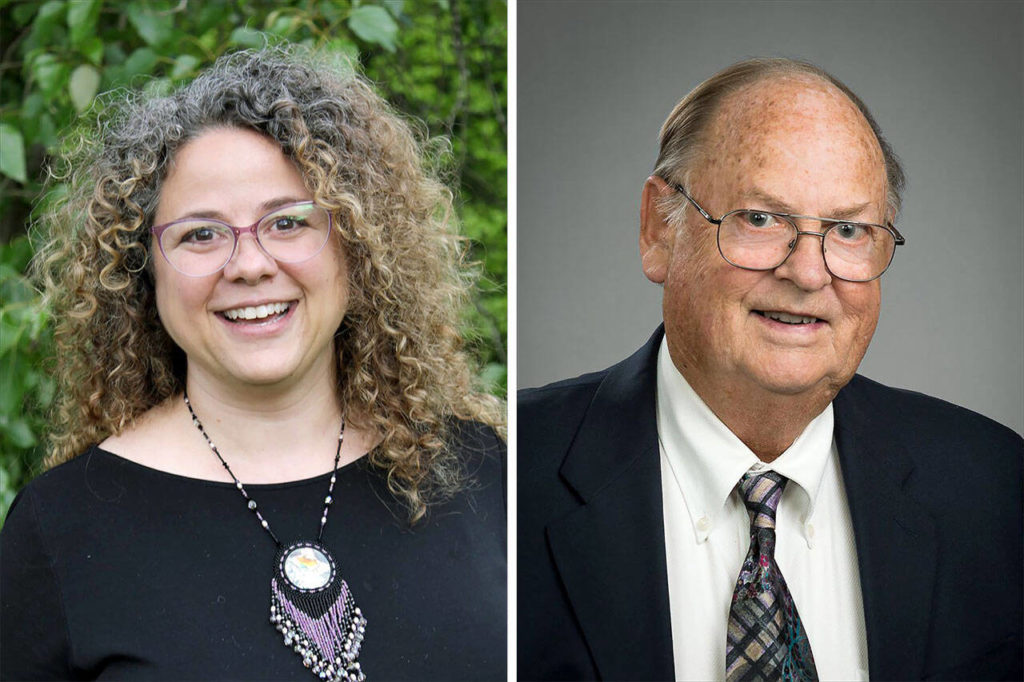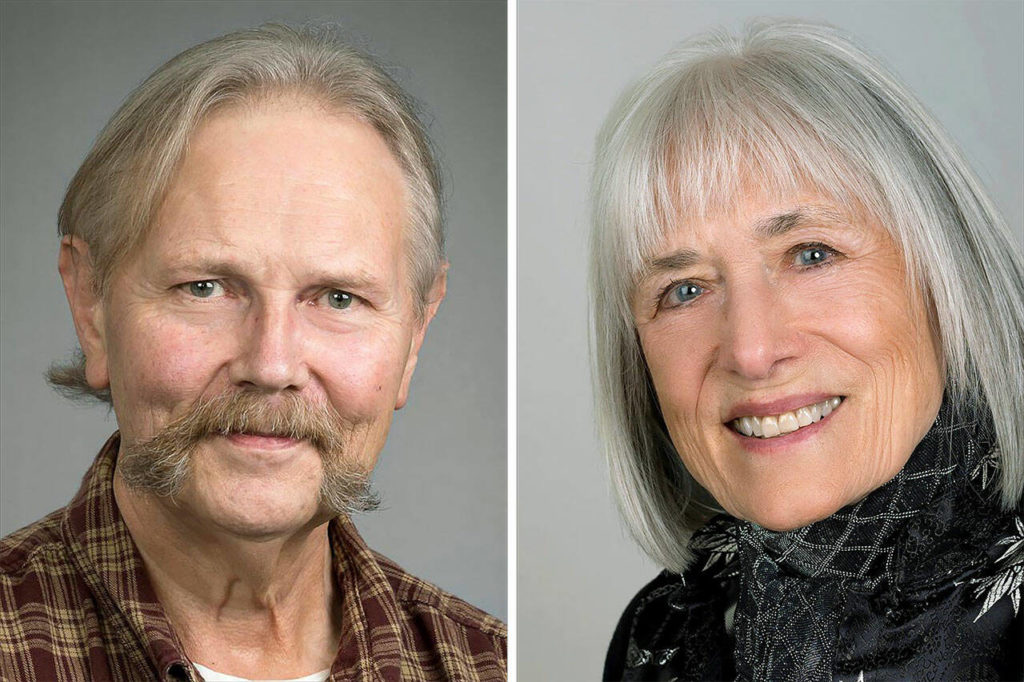SNOHOMISH — A town still shaken by a May 2020 display of guns and hate symbols could be embracing new faces in city leadership — or sticking with the status quo.
Four of five City Council races are contested in the Nov. 2 election.
Incumbents Tom Merrill, Larry Countryman, Steve Dana and appointee Felix Neals are vying to continue their work.
Progressive-leaning candidates shared concerns for environmental sustainability, access to housing and equity. Conservative-leaning candidates said the city has done a fine job in land use planning and said they want to preserve what Snohomish already offers.
On both ends, candidates want to preserve the city’s vibrant downtown, history and small-town feel.
Position 3
Felix Neals, running in the only unopposed race, was appointed to the council in 2020. He said he has learned to be flexible and willing to work toward a better end for all Snohomish residents.
Neals came to Snohomish from the East Coast about six years ago.
As one of the first people of color on the council, Neals said, he hopes to amplify the voices of under-represented residents.
“I take that to heart,” he said. “I do my best work and I’m very proud to be doing what I’m doing.”
If elected, Neals said, he would fund police training, focus on infrastructure and evaluate growth from a lens of concern for the environment.
Neals is a licensed mental health counselor and has served in volunteer roles in the city, including with the Historic Downtown Snohomish Association and the Public Safety Commission.
Position 4
Since he was elected in 2017, Tom Merrill has seen the city’s shortcomings under a microscope.
The city, he said, doesn’t have a unified plan for extreme weather like this summer’s heat wave; it needs to reevaluate imbalanced multifamily vs. single-family housing split; and elected leadership hasn’t done the best job of listening to marginalized groups.
These are things that take time to fix, but he’s hoping for the chance to continue chiseling away at the issues.
“With all this growth and expansion,” Snohomish is going to change, Merrill said. “We can either react to it, or we can plan for it, think about it, try to get ahead of it. So I think it’s very important for us to recognize change, and begin to look at what are we going to do about housing? What are we going to do about traffic? What are we going to do about employment? And those are the issues that we need to take up.”
Merrill said he would push for environmental sustainability in city code revisions: transitioning city vehicles to all-electric, preserving tree canopy and offering incentives for eco-friendly developments, for example.
His opponent, Brian Mills, a retired firefighter, said he’s dedicated to restoring hometown values in the community.
“Over the past year or so, our country and community have seen a dramatic shift in the way we treat each other,” he said in a statement. “And it is, for me, alarming. Riots and murder, property destruction and arson, and whites against blacks, and blacks against whites, and Asian hating, and Trump trashing, and Biden bashing and on and on and on. What has happened to ‘live and let live?’”
Mills said he’s a third-generation Snohomish resident who worked in construction prior to joining the Seattle Fire Department. He retired in 2006.
“As a council member I will promise to listen to you,” he said in the statement, “to learn what it is that concerns or worries you, and then use all the skill I have to work with other council members to keep Snohomish Snohomish, and lead us to a new, exciting, and hope-filled future.”
Position 5
Both candidates running for Position 5 have no elected experience and are hoping to bring fresh perspectives.
Kari Zimmerman is a local real estate agent, a job she likened to being a small business owner. She has also managed homeowner associations.
These skills lend directly to her ability to serve on the council, she said.
“I’ve created a budget from scratch for a new community that we were taking over,” Zimmerman said. “And then, how do you lead (people) to the right decisions? And then if there is a conflict, how do you get people to come together? Of course, people aren’t going to always agree. So how do you make those decisions that work the best for the whole community?”
Zimmerman only started attending City Council meetings a few years ago. She quickly became invested and wanted to help preserve the things she appreciated about the city.
“I mean, I already loved the community; I moved here on purpose,” she said.
If elected, Zimmerman said, she would work to preserve the historic district. She would also consider what land lends itself to commercial growth.
She said she understands the planning challenges of a city bound by two rivers and two highways, but is ready to make decisions with the future in mind.
“I don’t think we need to build a whole bunch of high-rise condo buildings,” she said, “but why wouldn’t we have some more smaller, more affordable units?”
Zimmerman said council members should foster discussions about equity.
“I think it’s more of a moral and ethics thing,” she said. “I think that’s why leadership is so important — when you have the people in those positions that are open to those conversations.”
Her opponent, David Flynn, has a similar vision for the city.
Flynn, a flooring contractor who has lived in the Snohomish area for more than two decades, said his passion for the city motivated him to serve.
Like Zimmerman, he said he would strive to balance the community’s historic charm with inevitable growth. He said he believes better infrastructure is essential to support expansion.
“I’d like to see that put at the forefront of our projects,” he said.
While working on projects for cities, Flynn said, he got an inside look at contract negotiations and city budgets.
“I think I’ll be able to bring some of that understanding to council,” he said.
Position 6
As a land use planner for the Tulalip Tribes with a background in ecology, Lea Anne Burke said she hopes to help the city find environmentally sound solutions and plan for sustainable growth.
“The elephant in the room that you can’t avoid anymore is climate change,” she said. “What does that look like in the city level? Do we need to move assets out of flood plains? Do we need to harden infrastructure? Or how do we move away from dependency on fossil fuels? Can we accelerate any of those programs that are funding that we could be going for to help community members? Switch to renewables? Things like that.”
Burke, who is Native American, said she wants to see the city commit to diversity through money decisions.
“How do we allocate city dollars in contracting? Are we supporting the small business community, women-owned businesses, minority-owned businesses?” she said. “Who are we hiring? Are there community groups that we can be amplifying? Elected officials need to listen to their community about their experiences … not turn a blind eye and pretend that there’s nothing wrong.”
If elected, Burke said, she wants to preserve green spaces in the city, tap local and state resources to expand access to housing and invest in community policing.
In response to a question about events in late May 2020, incumbent Larry Countryman said The Daily Herald is the real problem.
“Your newspaper is calling the residents in Snohomish racist. I mean, not racist. But ‘vigilantes,’” he said, in reference to a headline. “In fact, most of the people that were down there were people that live in Snohomish, and store owners and property owners that didn’t want our historic downtown destroyed by the threat of antifa.”
As it turned out, a white nationalist group was later caught posing as anti-fascists in hoax social media posts in small towns all over the country.
Countryman was the subject of public comment and letters to local newspapers in the months leading up to the election, because of two un-permitted apartments on his property.
“When I purchased this property, this was a remodel of an old, rundown building,” he said in an interview. “And the three apartments, two of them were illegal, they were built without permits.”
Countryman didn’t finish a required survey to convert the building into a duplex prior to moving in.
A letter from the city to Countryman, dated Dec. 19, 2014, said the survey “must be completed before any occupancy of the building will be allowed.”
Because of pressure from the public, “the city did bend over backwards to look through it and accepted my petition” and approved the survey of the property, Countryman said.
Countryman, a political cartoonist and relative by marriage to Mayor John Kartak, has lived in Snohomish since the 1970s. He has served 12 years on the council. His roots here give him “a little different perspective of most people,” he said.
While growth is inevitable, he said wants to preserve the “small town” feel and values.
Position 7
Incumbent Steve Dana said he’s well versed in urban planning and land-use management, something he considers an asset as the city looks to annex county parcels within its urban growth area.
Since joining the council in 2017, he said, the city has done a fine job creating policies that aim to preserve critical habitat while permitting commercial and residential growth. In 2019, the city amended a critical area code to clarify mitigation requirements to offset the negative impact of development.
Dana, longtime operator of The Hub burger restaurant, has lived in the city since the 1960s. He has been a part of volunteer organizations including the food bank, senior center and Kiwanis for decades.
Like his opponent, Karen Guzak, Dana served on the council previously and, like Guzak, took a brief break.
He’s the conservative candidate, and on social media, he has criticized both President Joe Biden and Gov. Jay Inslee for their positions on the pandemic.
In a July 27 Facebook post, he also suggested the “progressive agenda” that his opponent is running on would be bad for the city.
However, Dana told The Daily Herald even if he loses the election, he’s confident the city will be in good hands.
“Karen is a very competent person,” he said.
Guzak first got involved in the city as chair of the Historic Design Review Board in the early 2000s, when she helped redraft design standards and create a glossary of historic terms.
She went on to serve on the city’s Strategic Planning Committee, where she advocated for a new full-time economic development director.
“I started seeing that I could make a difference in the city,” she said.
She has since spent over a decade in public service on the Snohomish City Council, part of that time as mayor. She has also served on the Snohomish County Board of Health and Snohomish County Tomorrow.
After a brief break from elected office, she said, she hopes to return to address planning issues, create more “green” initiatives, improve equity and increase the affordable housing stock.
“Almost 20 years ago, I opened Yoga Circle Studio,” she said. “And the yoga principles that I hold dear: No. 1 is kindness … And I still believe that kindness is essential in human interactions. Kindness for each other, kindness for ourselves, kindness for our community, kindness for the environment. So that value of kindness drives me to this day.”
Isabella Breda: 425-339-3192; isabella.breda@heraldnet.com. Twitter: @BredaIsabella.
Talk to us
> Give us your news tips.
> Send us a letter to the editor.
> More Herald contact information.
